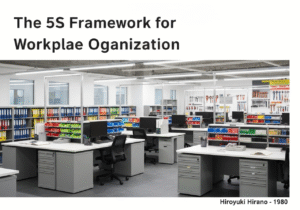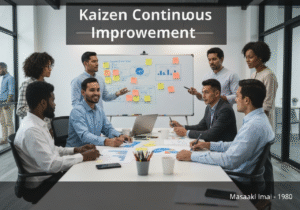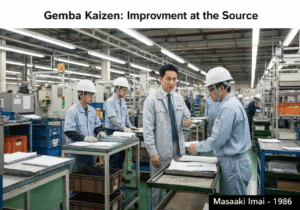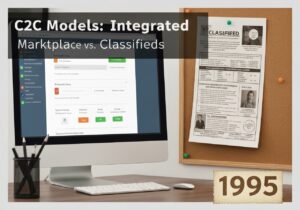To achieve a consensus on a specific topic or forecast future Veranstaltungen by surveying a panel of experts through multiple rounds of questionnaires.
- Methodologien: Maschinenbau, Qualität
Delphi-Methode

Delphi-Methode
- Änderungsmanagement, Methodik, Projektmanagement, Statistische Analyse
Zielsetzung:
Wie es verwendet wird:
- Ein Moderator sammelt anonyme Meinungen von einer Gruppe von Experten zu einem bestimmten Thema. Die Ergebnisse werden zusammengefasst und in weiteren Runden an die Experten zurückgegeben, damit diese ihre Meinungen auf der Grundlage der kollektiven Reaktion der Gruppe überarbeiten können, bis ein Konsens erreicht ist.
Vorteile
- Ermöglicht Beiträge von geografisch verstreuten Experten; Anonymität reduziert den Einfluss von dominanten Persönlichkeiten und Gruppendenken; bietet eine strukturierte Möglichkeit, Expertenurteile zu aggregieren.
Nachteile
- Kann aufgrund mehrerer Runden zeitaufwändig sein; hängt von der Sachkenntnis und dem Engagement der Panelmitglieder ab; Voreingenommenheit des Moderators kann die Ergebnisse beeinflussen.
Kategorien:
- Kunden & Marketing, Problemlösung, Projektmanagement, Risikomanagement
Am besten geeignet für:
- Vorhersage künftiger Trends oder Erzielung eines Expertenkonsenses zu komplexen Fragen, für die keine präzisen Daten verfügbar sind.
The Delphi Method is particularly effective in scenarios such as technological forecasting, where opinions about future advancements and their potential impacts are sought, making it suitable for industries like pharmaceuticals, information technology, and telecommunications, where expert projections influence R&D investments and strategic direction. Its application extends to project management phases that involve risk assessment, market analysis, and policy development, allowing organizations to harness expert knowledge during the planning and ideation stages. Participants typically include a broad range of experts from academia, industry, and government, which enriches the depth of analysis and encourages interdisciplinary collaboration. The anonymity of responses not only lowers the pressure on experts to conform to majority views but also promotes a richer variety of ideas and perspectives. Facilitators can effectively manage the process to mitigate Vorurteile, ensuring that less vocal experts still contribute meaningful insights. Results generated through multiple rounds offer a quantified representation of expert sentiment, aiding in the identification of trends and uncertainties that may not be obvious at first glance. As such, it serves as a strategic tool for decision-makers looking to derive consensus on innovative solutions or emerging challenges where empirical data is limited or non-existent.
Die wichtigsten Schritte dieser Methodik
- Define the specific issue or topic for the Delphi study.
- Select a diverse panel of experts relevant to the topic.
- Conduct the first round of surveys to gather expert opinions anonymously.
- Analyze the responses and identify key themes or points of agreement and disagreement.
- Provide a summary of findings back to the experts for further consideration.
- Facilitate subsequent rounds of feedback, allowing experts to revise their opinions.
- Repeat the feedback and revision process until consensus is approached.
Profi-Tipps
- Incorporate diverse expertise by selecting panelists from various disciplines to enhance perspective breadth and minimize biases.
- Utilize iterative feedback intervals efficiently, ensuring each round is brief and focused on specific themes to maintain engagement and clarity.
- Document and analyze changes in expert opinions between rounds to identify patterns or shifts that inform consensus-building effectively.
Verschiedene Methoden lesen und vergleichen, Wir empfehlen die
> Umfassendes Methoden-Repository <
zusammen mit den über 400 anderen Methoden.
Ihre Kommentare zu dieser Methodik oder zusätzliche Informationen sind willkommen auf der Kommentarbereich unten ↓ , sowie alle ingenieursbezogenen Ideen oder Links.
Historischer Kontext
1960
1980
1983
1990
1995
2000
2010
1950
1980
1980
1986
1994
1995
2000
(wenn das Datum nicht bekannt oder nicht relevant ist, z. B. "Strömungsmechanik", wird eine gerundete Schätzung des bemerkenswerten Erscheinens angegeben)














Verwandte Artikel
Management der Produktionsabläufe (MOM)
Fertigungsausführungssystem (MES)
Produktionslenkungsplan
Manuelle Prüfung
Bewertungsbögen für die manuelle Handhabung (MAC)
ManTRA (Instrument zur Risikobewertung manueller Tätigkeiten)